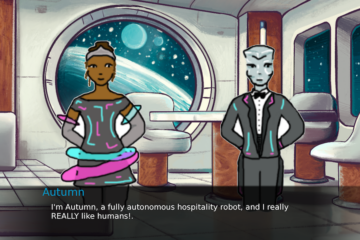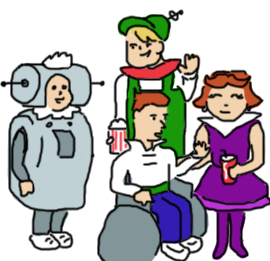I saw an article going around about how some one submitted a published New Yorker story to several magazines, including the New Yorker, and it got rejected by all of them.
I didn’t read the article, I don’t have to. This is an experiment I’ve heard about many times in the past, either as urban legend or fact, it doesn’t matter, because it’s purporting to expose something that isn’t hidden in the first place.
Ha! Gotcha! You aren’t selecting stories based on their objective quality!
Oh, wait: stories don’t have objective quality.
Entertainment is subjective, and stories are consumed as entertainment. Did it entertain? Did it entertain now, today? Did it feel fresh against the background of 90 stories the editor saw today? Did it pair well with their lunch or the headlines they read that morning? Is this even the same editor who bought the story last time, the one with the cat obsession and violent dislike for lavender?
I’ve attended a lot of Editor Q&A sessions, full of eager writers like myself asking questions that boil down to, essentially “Tell me what you want already and I’ll write it!” We want to believe that there is some story out there good enough, perfect enough, to be a sure thing. Like knowing tomorrow’s lottery numbers.
We want to believe that, but it’s a lie.
Editor X can’t tell you “Give me a cute kitten and a happy ending and a spaceship and I’ll buy it.” Because they don’t know that they will.
Imagine being an editor. Say I decide to turn my hand at churning out an anthology. It would be about pretty men being rescued by tough women in space, let’s say. We’ll call it “Princes in Peril on Pluto.”
I’m going to get, say, five thousand submissions on the theme. Some will be awful rush jobs. Some will be from my friends. Some will be obviously a previous story gently doctored to include a prince and peril and Pluto.
I can’t tell you right now, in this thought experiment, what the stories I eventually buy look like. Maybe something just blows my mind. Something is completely not what I expected but I want it. Something is exactly what I expected and I want it because it hits all my buttons. Something is exactly what I expected and I don’t want it because now I’ve read 80 similar stories and I’m bored with all those things I thought I wanted. WHO KNOWS.
As a slush reader, I have had to reject stories by dear friends. (And quickly learned to ask to skip stories by dear friends.) I have passed a story up to second round sure it was a future Hugo winner only to see it get eventually rejected by the head editor. (I learned to stop watching what happened in the second round.) This is how the sausage gets made. Subjective decisions followed by subjective decisions with constraints the submitter has no knowledge of, constraints that are constantly changing.
I’ve gotten acceptance letters that say “Great! I needed a piece this length to fill out a half-page in the next issue!” and rejections that said “I love this story, but we had Venus on the cover last month, I can’t do another Venus story this year.” Neither of those sentences deal with the quality of the story in question.
Obviously, the dark side of all of this “subjective not objective” is Bias with a capital B. AKA the years I spent wondering, “Would I have sold a story by now if my name were Mark instead of Marie?” We know that unconscious bias is at work in everyone. Earnest people who would swear they “haven’t a racist bone in their body” will select the identical resume with the name Jill Smith over Juanita Washington in study after study. “That person just seemed more qualified,” they’d say. The problem with unconscious bias is it IS unconscious. Editors can try to fight it. These days the most common tools are blind submissions (no names or identifying information) or limited demographic calls where they don’t give themselves the choice of picking a white person over a person of color. Even then, there may be bias towards authors who are from the socio-economic class as the editor, ie “I just identified better with this story” or an editor reading a blind submission might assume the race, gender and ethnicity of the author because of the race, gender and ethnicity of the characters.
The author or submitter can’t do anything about unconscious bias during the submission process. It’s in the mind of the editor. We can study, we can point out, we can advocate, educate, hope that our voice will help others, but ultimately, one can’t eliminate bias completely. Have I been passed up because I have a “working class” voice and most editors come from the upper middle class? Maybe? Who knows? It doesn’t help me either way the question gets answered. All that’s in my power is to keep submitting and try to write the best story I can.
Yes, while knowing that there is no story “good enough” to eliminate biased readings of it.
So, no, there is no objective quality in a story that will guarantee its success in the slush pile. At least we have the cold comfort that our rejection is equally not a reflection of quality.
I used to daydream a lot about traveling in time back to my college days, bringing my current laptop so I could have access to all 80-some published stories I have, submitting THOSE ones to Asimov’s and F&SF and Analog and Omni and getting my career going while I was still YOUNG, skipping the decades of struggle!
But you know what? The more I think about it, the more I wonder if I would be stuck in a hell of re-taking Geomorphology, living with an abusive first roommate, and getting rejections for award-winning stories because science fiction from 2023 is unintelligible to a science fiction editor in 1992.


